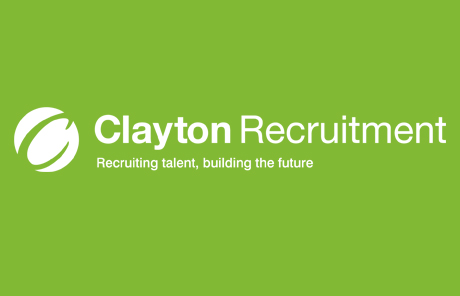
Take your business up a level with a high-performing team
- September 19, 2018
A high-performing team is what any employer would want. A high-performing team of efficient business professionals, that drives profits and gets results might not be as far off as you think. Building an attractive employer brand takes work; writing compelling job descriptions and creating an excellent culture is only the beginning.
Even before your new recruits join the company, high-performing teams require excellent leadership, support in their development and constant engagement. Our guide to high-performing teams tells you everything that you need to build one successfully.
Successfully onboard new team members
Building a high-performing team requires careful onboarding. There are two stages to this process:
- Establish what you want to achieve. You need to decide when onboarding will begin, what impression you would like to give to new staff, the tools that will help them do the job and goals you’d like them to meet. The most important thing to think about is how you will measure success and get feedback on the process. If you don’t have the information to work with it’s hard to make future adjustments.
- Put systems in place to achieve what you want. Prepare the essentials like security cards, work emails and computer equipment in advance. Providing information around basic housekeeping points such as where the loos are, tea and coffee facilities as well as who to approach with questions will help put the new recruit’s mind at rest. And don’t forget that a warm welcome will ease nerves. Let the rest of the team know that a new colleague is joining and to welcome them to the group.
High-performing teams need a high-performing leader
According to the Adair International Institute, a three-pronged approach to leadership underpins successful teams. Leaders need to manage the task, the team and the individual in order to get the best results.
The task needs to be clearly set out and defined aims must be communicated to the group. Research by EY into high-performing teams indicates that 44% of team members believe that clear, achievable goals are the most important factor in what makes a successful team. The group needs to understand the task to perform it well and leaders must ensure this happens. Providing resources, establishing responsibilities and offering feedback are critical at this stage.
The team needs support to achieve its goal and leaders can do this effectively by: equipping team members to deal with conflict, ensuring morale is high, establish standards of work, and develop leadership in team members. At an individual level, leaders must know all members of a high-performing team well. Awareness of strengths and weaknesses means leaders can effectively delegate and improve management of the high-performing team. This links closely to another key element of high-performing teams: how to manage support and training.
Support high-performing individuals, benefit the team
Awareness of individual weaknesses means that a leader can put in place measures to help them contribute to the team. Praise and recognition at the right time are beneficial in maintaining motivation.
Training is key to keeping the overall team on track. Seeing that an individual needs help in a certain area means training can be given to bring them up to speed. Managing the individual carefully benefits the team because each person has the skills to achieve the overall task aim. When new people come into the team, working with them to establish a plan for their development means you can cover all bases and fill in any gaps that might cause the team to fall short. And by improving the individual’s performance, you’ll get the very best from your employees.
Get the best from your employees
High-performing teams don’t happen by accident. Strong leadership from the top down keeps the team unified behind a common goal. Demonstrating integrity, inspiring others and problem-solving are among the top traits of an effective leader according to the Harvard Business Review.
There are three stages to getting the best from your employees:
- Clear expectations: Set out what you expect from the start. Provide definitive goals and milestones to keep the team on track. Decide how the goal will be measured and build deadlines into the process that break the goal down into smaller, manageable chunks.
- Consistent feedback: Feedback allows your team to keep adjusting and making continual improvements. Explain what you need from your team as the task progresses and encourage peer feedback, carried out in a constructive way.
- Motivation and empowerment: Show that you value your staff and their effort. Offer praise, reward and an all-important ‘thank you’ when targets are reached to keep employees motivated and focused on the task.
Employee engagement
Building a team of talented professionals means constantly engaging employees. Culture, employer branding, and effectively leading your high-performing team are all important. The crucial element is managing performance at an individual level.
This is where deep knowledge of the individuals that make up your high-performing team pays dividends. As soon as a new staff member joins your team it’s essential to understand their objectives. Engaging them with the work, the team and the task integrates them firmly into the group. You can increase engagement through an ongoing system of performance management:
- Individual fit with the team: Know what you want to achieve and communicate it to everyone. Make sure all team members are aware of how the goal relates to their role.
- Conversations are powerful: Communication builds trust and relationships which are both vital to high-performing teams. Engage staff in conversation about your vision, their development and keep coming back to the subject. That way you’ll not only engage employees you’ll join up their development with the rest of the team and business, which will strengthen the team.
- Agree S.M.A.R.T objectives: Unite team members who share a similar role behind a common goal. Make the goal ‘S.M.A.R.T’ – Specific, Measurable, Achievable, Relevant, Timebound. By making use of their knowledge and experience on the job you can create something meaningful which engages individuals and enhances team performance.
High-performing teams take time to build and need a clear plan for success. Your efforts will be rewarded with a group of individuals that work in sync with efficiency and precision. Constant feedback, conversation, motivation and inspiring leadership ensure that your team move forward as one, performing highly along the way.
Interested in turning your staff into a high-performing team? Our ‘Ultimate Guide to a High-Performing Team’ has more and will explain in detail how to create a formidable workforce. Download your complimentary copy or call us on 01772 259121.
If you found this guide useful, please do take a look at our other blogs and guides and don’t forget you can register your vacancy online.











